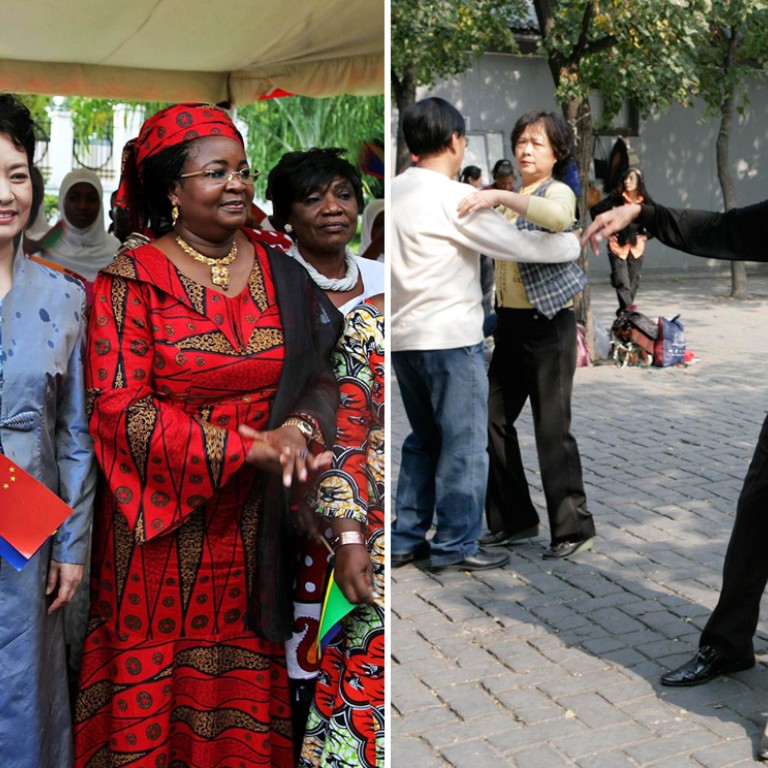
Changing tides could shift focus from China to Africa
Ageing population in China may see Sub-Saharan region's labour force become highly competitive
Shifting demographic tides could stymie the dawning of the much-heralded Chinese century and see development surge in Sub-Saharan Africa, two recent studies show.
China was facing the challenges of an ageing population much sooner than previously expected, an HSBC report said, warning that if nothing was done to offset the changes, it could shave 0.6 per cent off annual gross domestic product growth by 2030.
Meanwhile, an IMF working paper said changes in the demographics of Sub-Saharan Africa - tipped to account for 80 per cent of global population growth this century - could boost per capita GDP there by 56 per cent by 2100.
China's working-age population shrank for the first time in 2012, and the National Bureau of Statistics said it narrowed by 3.45 million last year.
"This is much sooner than many expected, and at a rate that will accelerate in an almost exponential manner over the coming decades," the HSBC report said.

Asia's working-age population grew 20 per cent from 1965 to 2010, coinciding with a sevenfold increase in per capita GDP, the International Monetary Fund paper said.
Beijing adopted policies that allowed it to "leverage its competitive advantage in labour", said Paulo Drummond, a co-author of the paper.
Data from the UN shows Sub-Saharan Africa will soon reach the same population sweet spot. The proportion of the region's population aged between 15 and 64 will increase from 53.5 per cent in 2010 to 64.6 per cent in 2100. In China, conversely, this number will fall from 73.5 per cent in 2010 to 56.6 per cent in 2100.
Both trends could have enormous economic consequences.
"It was precisely this shift in demographics, which played a role in Asia's emergence, that we expect to see in Africa," Standard Chartered's head of Africa research, Razia Khan, said.
The IMF paper said the changes in Africa represented "a window of opportunity, which if properly tapped, can be transformational".
China's demographic dividend saw it become the world's low-cost producer, with a vast body of labour, but the ageing of its population means it is losing its competitiveness. If the population of Sub-Saharan Africa changes as predicted, it would become a highly competitive labour force on the world stage.
"To the extent China's ageing and rising cost of production allows for a relocation of some industries to Africa, then this may help accelerate the speed at which Africa harnesses the demographic dividend," Drummond said.
Investors are already carefully observing African economies.
US President Barack Obama hosted African leaders at a US- Africa summit in Washington this month, signalling growing US interest in investing in Africa.
Trade between China and Africa reached a record US$210 billion last year, up from US$18 billion in 2003, a nearly twelvefold increase. Of this, Chinese exports to Africa accounted for about 44 per cent.
"The changes will be most dramatic in Africa," Khan said. "The returns on investment will be driven up, and we expect to see more of the Africa growth trend."
However, economist Frederic Neumann, a co-author of the HSBC report, said "demographic dividends can't be taken for granted".
In order for Africa's demographic transition to be utilised for growth, the IMF said, investing in education was critical. Further, the economy needed to create enough jobs to absorb the growing population, or there could be potential social risks.
Drummond outlined a win-win scenario, in which Chinese firms would invest in Africa, creating jobs and prosperity for the African continent while also expanding their own horizons.
"Of course, all this implies that the African countries are ready to seize this opportunity," he said.
China also needed to deal with its own demographic issues, the HSBC report said. Unlike developed economies, China had had less time to adapt to its growth and demographic changes, it said, and the welfare system was therefore not as developed as it should be for a population ageing so fast - compounding fears that it would become "old before it's rich".
"There already is an impact," Neumann said. "But by 2020, the effects will become much more apparent, particularly in health care, as older people demand more services."
The central government has started reforms in urbanisation, the household registration system, and the one-child policy to deal with the issue, but Neumann said it was too early to tell whether they would succeed, adding that "the causes and effects are complex".
